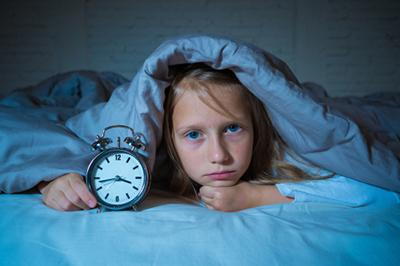
Dr. Richard Bogan and Dr. Laura Herpel at Bogan Sleep Consultants in Columbia, SC, are committed to providing the proper diagnosis of sleep disorders in children so that they can be treated effectively.
Guide to Sleep Disorders in Children
Sleep disorders can impact anyone, including children. This is unfortunate, as it can make childhood less than enjoyable. Kids who don’t get adequate sleep can be moody, do poorly in school, and lack the energy to have fun. Below, Dr. Bogan and Dr. Herpel at Bogan Sleep Consultants in Columbia, SC, share signs of sleep disorders in children.
Signs and Causes of Sleep Issues in Children
Sleep disorders can occur due to a variety of reasons. In some cases, obesity or general health plays a role. In others, genetics, anxiety, or medical issues are to blame. And at times, not having a consistent bedtime or calming nighttime routine is at the center.
There are several signs that your child might be struggling with a sleep disorder, including but not limited to:
- Having nightmares or night terrors
- Being irritable
- Wetting the bed
- Living with ADHD
- Snoring, snorting, and gasping while asleep
- Trouble falling asleep or waking up constantly
- Trouble staying awake in class
- Sleepwalking
These symptoms do not automatically mean a sleep disorder. However, if they occur consistently, it is a good sign that something is amiss. The following are some of the most common sleep disorders diagnosed in children.
- Insomnia
- Sleep apnea
- Excessive daytime sleepiness
- Periodic Limb Movement Disorder
- Narcolepsy
What Should I Do If I See Signs of a Sleep Disorder in My Child?
One of the most important things is to speak to a sleep specialist who will recommend the best course of action. In many cases, this will include a sleep study or – at minimum – keeping a sleep diary.
Once a diagnosis is confirmed, a treatment plan can be developed. Depending on the disorder, this could include medication, cognitive behavior therapy, treating the underlying medical condition if applicable, and various other techniques.
In addition to seeking help, there are some steps you can take at home that can have a positive impact, such as:
- Setting a consistent bedtime that provides plenty of time for quality sleep.
- Shutting down TVs and other devices within a few hours of bedtime.
- Identifying any factors that impact sleep and reducing those triggers.
- Keeping your child’s room cool and dim for sleep hours, and minimizing noise in the rest of the home.
Learn more about sleep disorders in children by consulting with Dr. Bogan and Dr. Herpel at Bogan Sleep Consultants in Columbia, SC, at (803) 251-3093.
